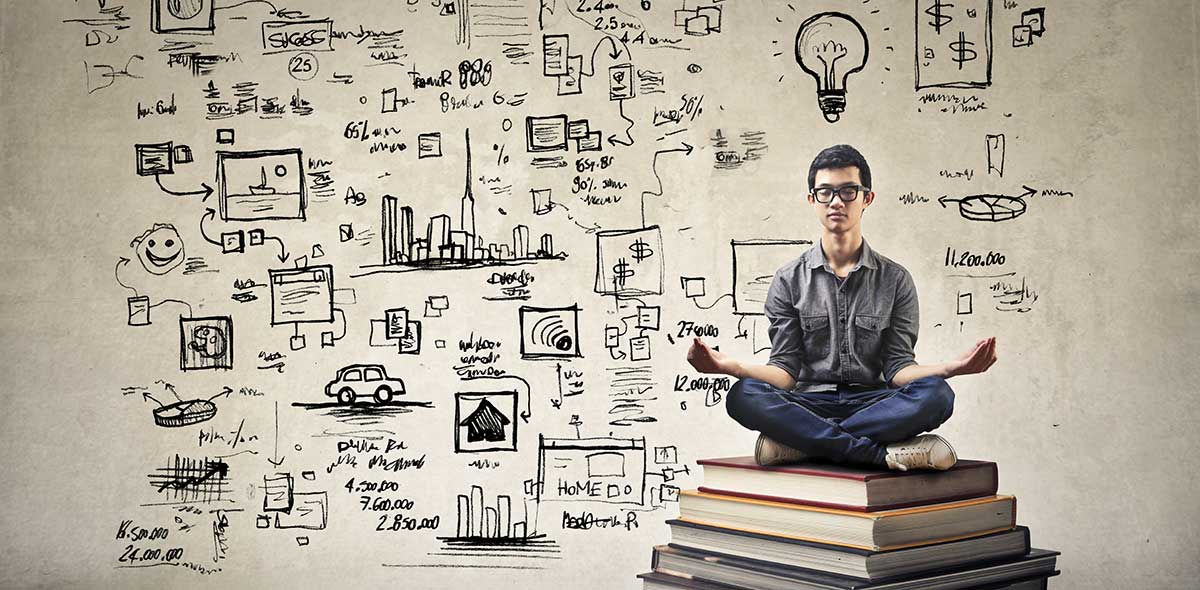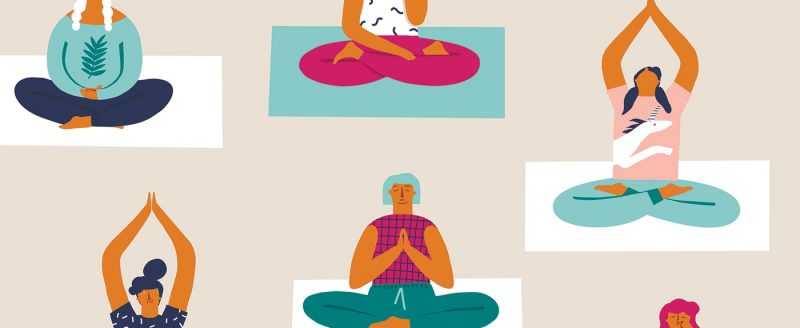Do you ever catch yourself living the past? Do you go back to different moments in time to relive events, remember old friends, or replay difficult experiences over and over again in your mind?
Do you ever project yourself into the future? Do you think about the perfect house you want to buy? Or worry where your job is taking you? Or do you dream of meeting your ideal partner and how your life will be together?

Maybe you think about things that haven’t even happened. Like worrying that you will catch some rare disease that no one will be able to cure. Or that you will have an accident and be permanently injured. Or that your kids are in danger. Or you believe your friends are saying bad thing about you.
Our minds can do a lot of wacky things when left to their own devices.
Why, you might ask, does that happen? One of the main reasons is because we are bombarded with information and constant noise in our modern society – the news, TV, radios, podcasts, videos, social media feeds, emails, text messages, books, magazines, advertising… Our attention goes all over the place and we receive a multitude of different thoughts and ideas at an unrelenting pace. Our minds become very noisy that way.
On one level, information overload can be interesting. We learn a lot about different things and learn to process tons of ideas at once. We connect with many people and learn about their lives. But we are also twisted around, convinced of things, sold stuff, and manipulated. The information we receive works hard to to persuade us to buy this or that, believe this or that, or change our behavior in this or that way. It is challenging to process everything. We are put into a state of mental chaos and thought acrobatics. Mental images and ideas spin and fly and go back and forth in time and we think about a myriad of different things at once.

When we let it run wild, this kind of constant thinking can cause confusion and stress. Surprisingly, we might actually think it is normal to think all the time because it seems like everyone is as well. As a society we all seems to be going in a million directions, talking a million miles an hour, and thinking a million different things at once. We live in distracted, disjointed, cacophony of madness. It can be challenging to focus and keep information straight. We have difficulty thinking clearly. It can create anxiety and wear us out. Maybe we do want to slow down, think clearer, and be more calm in our minds, but we are not sure how to do it.
This is where a mindfulness practice comes in.
Mindfulness is about keeping your thoughts focused on the present moment. Not the past. Not the future. And certainly not to any made-up worry or concern. We learn to keep ourselves here, focused on what is going on right now, and ideally only thinking about one thing at a time.
Mindfulness is not something that people can easily snap into after a lifetime of busy-thinking. It is developed over time.
One popular way to become more mindful is to develop a meditation practice. Meditation requires us to sit still, quiet the mind, observe thoughts and let them leave. We focus on breath and disconnect from mental chatter. After meditation people report being calmer, more focused, and more relaxed. An ongoing meditation practice teaches people how to go about their days in with clearer mental state. We learn to catch ourselves when we slip into the past to ruminate on old memories or when we fling forward into a future fantasy. We can decide to come back to where we are in the present and stay there.

Another method that supports mindfulness behavior is writing in a journal. Journaling allows someone to take all of their noisy thoughts and put them on paper – or a computer – and get them out of the mind. It is a powerful practice that many people do to support mental clarity.
Other activities like talking long walks or going for a run, spending time in nature, singing, playing music, doing yoga, painting and other creative activities all support a mindfulness practice as well.
If learning more about mindfulness sounds interesting to you, we invite you to explore the topic on our website and learn about experts who can help you more directly if you want some support in developing your practice.










